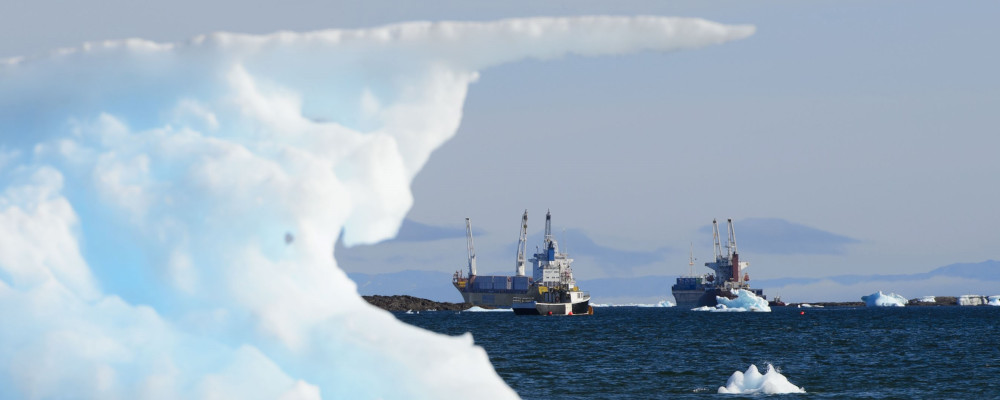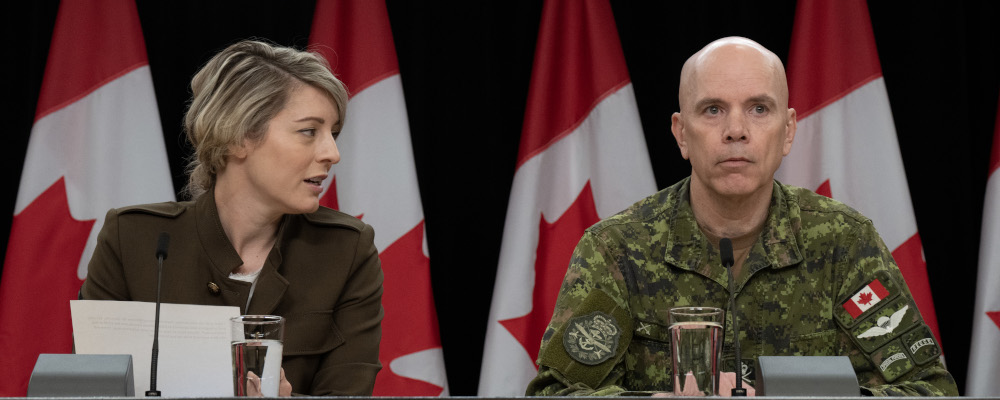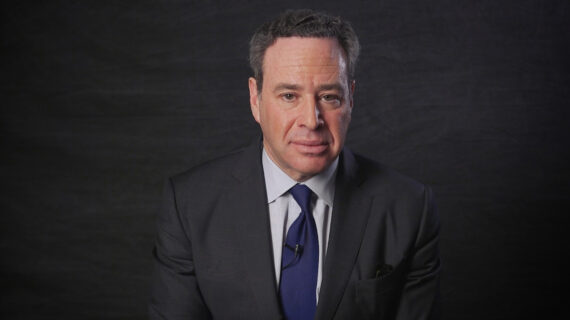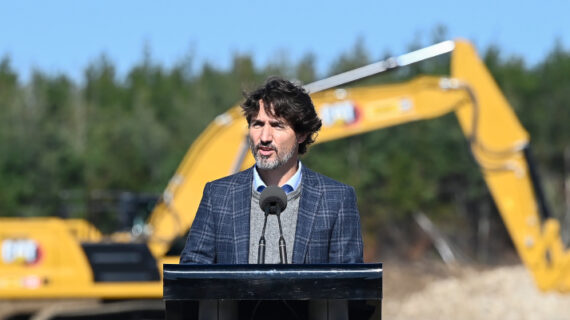The world is facing a growing list of crises as international tensions rise. In the wake of Hamas’ devastating terrorist attack on Israeli civilians, Axios reported late last week that Iran warned Israel that it would intervene, either directly or by its proxies, if Israel’s counter-attacks on Gaza don’t cease.
The U.S. promptly followed up with its own warning to Iran against further escalation. As the current conflict continues to ramp up, so do the prospects for another protracted war in the Middle East.
Of course, the deteriorating situation in Israel comes in the wake of Russia’s invasion of Ukraine, which shows no signs of ending any time soon. Add to this China’s increasingly aggressive foreign policy posture and the continued expansion of great power competition. Lest we forget as well, the COVID-19 global pandemic that tested the limits of our health-care systems and international cooperation.
And these are just the crises most people know about. Readers will be forgiven if they didn’t know that Yemen’s nearly decade-long civil war has produced a humanitarian catastrophe of 377,000 deaths according to UN estimates, that there have been a dozen successful and attempted coup d’états in West and Central Africa since 2020, and in our own backyard, Haiti has become a failed state that has descended into chaos.
What is sad is that we could go on. But in a world that increasingly looks more dangerous and crisis-prone, Canada will have to make some tough choices about how to focus its foreign policy.
Canada cannot and should not be everywhere at once. As a small power, it lacks the capabilities to ingratiate itself in every global crisis, and, in recent decades, it has also lacked the political will to substantively engage in a broad-based foreign policy. The questions then are: what should determine Canada’s foreign policy priorities, and where should Canada focus its attention?
Canada’s international priorities must be derived from its national interests. Too often, “national interests” go undefined, but in the Canadian case, they involve ensuring the maintenance of Canadian sovereignty and territorial integrity, working to secure Canada from foreign and domestic threats, expanding economic prosperity, preserving national unity, and partnering with like-minded allies to advance Canada’s foreign policy priorities.
Using national interests as a starting point, three key regional focuses should form the backbone of Canadian foreign policy moving forward—the United States, the Arctic, and the Indo-Pacific region.
First and foremost among Canada’s foreign policy priorities is maintaining strong relations with the U.S. The U.S. is our closest ally, being at the heart of our regional security architecture and the destination for over 75 percent of Canadian exports. However, if the Trump years taught us anything, it’s that this relationship can’t be taken for granted. Canada saw the ease with which a change in administration threatened its economic stability with the renegotiation of NAFTA and the application of tariffs aimed at protecting U.S. security to Canadian goods (ah yes, the threat to US national security from Canadian aluminum and steel!).
Meanwhile, several irritants in recent years related to cross-border energy trade, a lack of policy coordination during the COVID-19 pandemic, and growing concerns out of the U.S. over a lack of Canadian defence spending, among others, illustrate a stagnating relationship. As the 2024 presidential election and 2026 CUSMA review approaches, Canada needs to prepare to protect its economic interests should another Trump presidency be the reality it faces. Given that all politics is local in the U.S., to do this, Canada should be working to ensure that Congress and U.S. state legislatures understand that Canada is the top destination for exports from 32 states and that 80 percent of Canadian exports to the U.S. feed American supply chains. Any disruption to this relationship will hurt both economies.
Another critical region for realizing Canada’s national interests is the Arctic. Recent years have seen a growing regional military build-up by Russia, China claiming itself to be a “near-Arctic” power, and Canada continues to have a difference of opinion with the U.S. on the extent of Canadian regional sovereignty. Canada needs to further invest in its defence capabilities up north.

The Trudeau government took a positive step in this direction in 2022 by announcing $4.9B in funding over the next six years and $38.6 billion over the next 20 years for NORAD modernization, including investments in northern early warning systems. However, Canada must also work to ensure that the long-promised Nanisivik Naval Station is finally completed in 2024 and that its naval capabilities are up to the challenge of defending Canada’s sovereignty in a contentious Arctic.
A third key regional priority should be the Indo-Pacific. Yes, the Indo-Pacific and not Europe. Europe was the geopolitical centre of the last century, but the Indo-Pacific is the geopolitical centre of the future. This region accounts for 65 per cent of the world’s population, and by 2040 it will be home to 50 per cent of global GDP. It is also home to large rising powers like India, Indonesia, and China, the latter of which is embroiled in an ever-encompassing competition with the United States.
Canada’s strategic regional goals were outlined in the recently released Indo-Pacific Strategy, and they include efforts to ensure regional stability amid rising tensions, expand economic integration, and build regional diplomatic ties. To realize these laudable goals, Canada needs to begin the long-term efforts of building sustained cooperation with states like Japan and South Korea and regional organizations like ASEAN. Without these efforts, there is a risk that Canada will be viewed as a rhetorical Pacific power rather than a substantive one, thereby threatening the realization of Canada’s regional interests.
While the above regions represent where Canada should focus its foreign policy resources in an increasingly contentious world, this, of course, doesn’t mean that Canada shouldn’t continue engaging in other parts of the world, providing humanitarian aid to crisis zones, or shirk its responsibilities to multilateral institutions. Rather, in a world of scarce resources and political attention, priorities must be made, and those priorities should reflect a foreign policy that seeks to maximize Canada’s national interests.

Moving forward, Canada should take several immediate steps.
First, it needs to get to the bottom of how foreign interference efforts are being perpetrated within our borders, be that alleged Indian involvement in extra-judicial killings of Canadian citizens, Russian disinformation campaigns, or Chinese election interference. Such actions are clear violations of Canadian sovereignty, and all efforts should be made to stop them.
Second, Canada needs to reverse the recently announced cuts to defence spending. Canada is already below its NATO spending commitments, and this sends the wrong message to our allies. Cooperative efforts like the “Quad” and the “Quint” are increasingly informal and transactional. If Canada doesn’t show that it has something to offer, it will continue being left on the international sidelines.
Lastly, Canada needs a foreign policy review that clearly defines Canada’s national interests and how those intersect throughout individual elements of its foreign policy, like defence, trade and investment, and development. The purpose of such a review is to ensure that Canada’s foreign policy toolkit is ready to meet the challenges of tomorrow in a coordinated manner. A robust foreign policy is a coordinated one.




